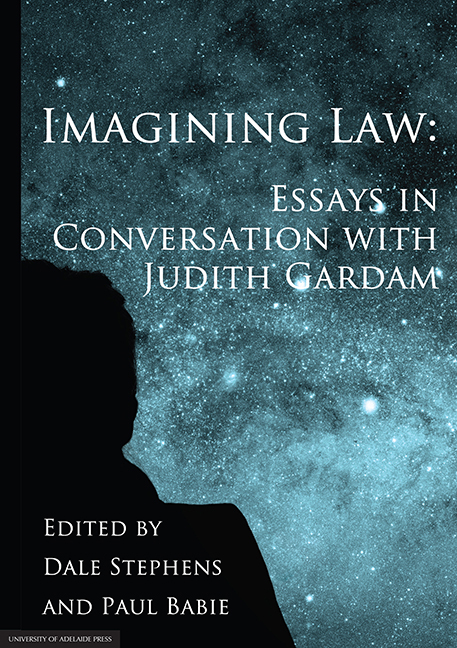Book contents
- Frontmatter
- Dedication
- Contents
- List of Contributors
- Acknowledgements
- 1 Introduction: Seeing Further over the Horizon – A World of Limitless Possibilities
- Part I
- Part II
- Part III
- Gender and Armed Conflict
- Gender and Feminist Concepts
- Theoretical Issues
- 12 Given the Freedom to Ask Anything, What Questions Ought the International Legal Scholar Explore? Using Gardam's ‘Alien’ to Examine this Question
- 13 The Alien Within
- A Selected Bibliography
- Table of Cases and Materials
- Selected Index
13 - The Alien Within
from Theoretical Issues
Published online by Cambridge University Press: 05 August 2017
- Frontmatter
- Dedication
- Contents
- List of Contributors
- Acknowledgements
- 1 Introduction: Seeing Further over the Horizon – A World of Limitless Possibilities
- Part I
- Part II
- Part III
- Gender and Armed Conflict
- Gender and Feminist Concepts
- Theoretical Issues
- 12 Given the Freedom to Ask Anything, What Questions Ought the International Legal Scholar Explore? Using Gardam's ‘Alien’ to Examine this Question
- 13 The Alien Within
- A Selected Bibliography
- Table of Cases and Materials
- Selected Index
Summary
INTRODUCTION
In ‘An Alien's Encounter with the Law of Armed Conflict’, Judith Gardam converses with an other-worldly creature about international humanitarian law. Gardam's alien is a device to explore the law of armed conflict from without, as a method of investigating the law ‘objectively’. This constitutes an inventive variation on several epistemological methods, which often use different subject positions in order both to reflect critically on the production of knowledge, and to construct alternatives to mainstream truths. In this chapter, I review some of these methods with the aim of illustrating the significance to legal scholarship of a range of such approaches over the past few decades. I also ask what imagining a more radical (that is, external, albeit fictional) subject of knowledge contributes to debate about social and legal norms. In doing so, I will refer to the Alien film series to consider the ways in which imagining a thoroughly radical and incomprehensible outside can seriously unsettle human self-knowledge.
Judith Gardam's alien dramatises theoretical approaches that deploy position and perspective in order to mobilise different truths. Rather than assume or claim that there is a unified truth or unsituated perspective, such methods explicitly acknowledge the role of plural locations in truth construction. As Sandra Harding says in relation to feminist standpoint epistemology, the point of such methodology is that it ‘makes strange what had appeared familiar’ and enables the scholar ‘to value the Other's perspective … in order to look back at the self in all of its cultural particularity from a more distant, critical, objectifying location’. These statements accurately capture Gardam's alien and alien methodology: it starts from an explicit position of strangeness rather than familiarity, and objectifies the law of armed conflict by looking back from a completely foreign place to the ‘cultural particularity’ of the law. As I will explain, methods mobilising perspective have been, and continue to be, very influential in legal scholarship (though the alien perspective is, I believe, unique). Indeed, the deployment of some form of ‘non-legal’ position and perspective has become so crucial and so accepted in the understanding of law that we might even say in some circumstances that the ‘alien’ has been somewhat normalised, if not domesticated, in legal thinking.
- Type
- Chapter
- Information
- Imagining LawEssays in Conversation with Judith Gardam, pp. 279 - 298Publisher: The University of Adelaide PressPrint publication year: 2016



